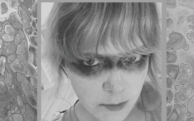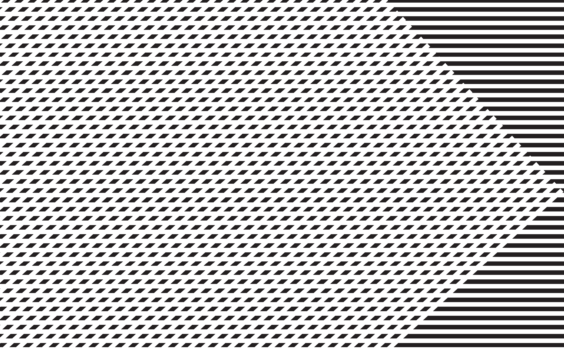
by Kathryn Fleishman

I. Arrival
Oconomowoc, Wisconsin, long after nightfall. I don’t even pray. As if the moon illuminates anything but the sad, septic walls of my room. It is my first night at my new medical residential program, and I wake multiple times as the night nurse pokes her head around the door to check for breathing, my own and my roommate’s. She is a winnower, sifting through our groans and fears, which pour out like grain, like spilt drink. The following day, in the common room, three silent women sit at a table. One of them, at least, is wishing for death unforthcoming. This is a place for people who struggle with belonging: to themselves, to culture, to being in the world. In my chair, my knees stiffen as I hold them folded – like women’s clothing – against my chest. My head is pressed against the glass of the windows looking out on a manicured lake shore, on flat miles and two white-tailed deer waiting patiently. I think, if this glass is edible, I will not go hungry.
During my first meeting with my new therapist, I see the Latin phrase Amor fati – “love your fate” – tattooed above the line of her twitching shoe. I talk to her awkwardly about my suicide attempt, my recently diagnosed bipolar disorder, my new, clumsy attempts at queering gender. She calls me Kelly, the first person to do so aside from my partner. Language, though, feels spoiled: it doesn’t yet know I am trying to make myself new.
Every horizon of possibility also contains its incipient end. The pre-Socratic philosopher Anaximander claimed that the sun was nothing more than burning slag in the sky, some base material caught ablaze, and not, after all, an incarnated deity. Apocrypha tells that the outraged Greeks, lying god-blind in the shade, killed Anaximander for taking away their god. They have all gone now, but the outrage remains. And one day, the sun, a final burning coin, an eaten magnitude, will be minted and sent spinning down, clarifying and consuming the sawed-off shotgun clouds, the wind coming cold off the lake, this little paradise, its final shine.
II. Decided or Discovered
The therapeutic engine that drives the residential program at Oconomowoc – a facility for people with depression, bipolar disorder, severe anxiety, OCD, substance abuse, and most possible variations and dual diagnoses – is the system of psychological theory and practice known as Dialectical Behavioral Therapy (DBT). Lane and Cortney Pederson’s Dialectical Behavior Therapy Skills Workbook is the basic text, a happy mix of self-actualization models, watered-down Jamesian pragmatism, and behavioral skill sets based on controlled studies and neuroimaging. DBT’s concepts and exercises are tailored to assist the patient in distinguishing the hidden (invariably damaged) self from that which surrounds it like a foil: the self as defined by others, by trauma, by mental illness.
A central assumption of DBT is the notion that there exists an essential self that can be identified, defined, realized; that this essential self can be made to belong to itself; that the self has rights regarding its “needs and wants.” DBT and its practitioners comfortably speak of the self as something to be both uncovered and pursued, something innate and constructed. Pragmatic rather than metaphysical, there are vestiges in DBT of William James, who talked about various constructed selves (material, social, spiritual) while also reading the “I” of a sentence – such as, “I know that it was me who cheated on you” – as the pure ego, a thread of consciousness stitching together all other possible and performed selves.
*
During my first hospitalization for mania, I scribbled frantically on a scrap of paper with a brown marker, fat as kindergarten, in my fingers: “What is left of time if the present is taken out of it? Aristotle and Augustine, both, in their skeptical dismantling of the ‘realness’ of time, ask this question. But it’s something else entirely to approach the question drugged, as a phenomenological reality. Maurice Blanchot talks about the non-present which is not-absent, but tempts us, since we cannot meet it except at the limit, moments of what we call ‘crisis’ or ‘extremity.’ Myself accepting itself as a fiction, as a cannonical (sic) abbreviation, fractured in advance but within the law of the same, within the text of the DSM V. At the border of my language or writing or self, living without myself.” Looking over these jottings today, my best guess is that I was asking – in a time of crisis and with a sharp sense of the unreality of the self – if there could be a way to not lose myself entirely; amidst ungovernable forces, I wanted to find a new space for belonging and duration. It was, I believe, a confused hope, a glimpse – seen through the clouded glass of mania – of the birth of a new subjectivity and personal history.
After the mania, after the intoxicating feeling of running hot, the froth and delirium of speech and motion, the elated process of create, weld, scorch; after this, the slothful dark of depression. The Danish philosopher Soren Kierkegaard wrote that despair is not an emotion but a corroding element, eating away at the self. The true difficulty of mental illness, subtle and corrosive as rust, is the way it corrodes love, undermines trust, and – as in Kierkegaard’s despair – erodes the self.
*
I never believed in my sexual identity, even when I was acting it out, even when it was keeping me up at night, anxiously breathing beside my wife, hearing my son turning over in his crib. Nor did I believe in my own mental illness. Mental illness itself does not feel “real,” nor do its consequences feel justified. Both the cause and its chaotic effects smothered in a fog of unreality.
My experience of these two aspects of myself, gender identity and mental illness, are twined together, strands of my experience twisted up into a braid of unreality. Years of tension and denial have pulled those strands into knots, taut and obstinate.
*
The first time I wore eye-makeup – carefully applied by my lover, while she straddled my lap – I felt seen: a self visible, in focus for the first time.
*
When I talk with the behavioral specialist, a hard-ass blond with an indefatigable smile, about my difficulties wearing women’s clothing around the Wisconsin hospital unit, she tells me that I need to learn how to strut. As I walk the hotel-like corridors of the residence lodge – the yellow light shadowy against the beige walls – I try to get my hips to move in a more femme way, putting one foot precisely in front of the other and opening my femur in a swaying motion. Everything else is in place: the makeup, queer haircut, painted fingernails, knitted top and women’s skinny jeans. And still the question: why is my body rebelling, insisting on remaining a perch for maleness?
How to pull the self – mentally ill and gender-queered – up out of the quicksand claim that the world has on you. Equally difficult and equally necessary: how to then belong to the world.
III. The Uncanny Home
Sitting in a blue overstuffed easy chair in the common room, I meditate on how out of focus, blurred like a double exposure, I feel upon hearing my chosen name, Kelly, spoken by staff and residents, while still reading my given name on emails, documents, and files. Not a new feeling, exactly, given my years living as a straight, religious male. But vertigo-inducing nonetheless. Two names, current and former, both strange and familiar at the same time. Which is the image, and which the real? My very self a multiple field where I wander, uncertain and anxious, unfamiliar and misplaced in both mind and body. As with the strictures of masculine and feminine, so too the magnetized poles of my mood disorder, the needle swinging loose between them.
In the same blue chair, jotting notes in my red Moleskine notebook, I keep coming back to Freud’s notion of the uncanny as the presence of the unfamiliar precisely within the known familiar. The German word for “uncanny” is weirder and more telling in its etymology than the English translation. “Unheimlich,” which Freud used in his seminal essay on the uncanny, is the negation of “heimlich” – often translated as “home-like.” But although “heimlich” mostly suggests comfort, belonging, being at ease, it can also mean that which is private, secret. And if we press the point, it comes to mean “secretive,” even suspicious, dangerous, haunted. Unspooled thus, “unheimlich” suggests the un-home, but also the un-secret or the un-hidden. Schelling wrote that “the uncanny is that which ought to have remained secret but has come to light.” The uncanny is the disclosure of the secret we keep even from ourselves. Such a disclosure reminds me of Eve Sedgwick’s definition of queerness as “a continuing moment, movement, motive – recurrent, eddying, troublant . . . it is relational, and strange.” I’m not on my way to any final compass point. I hold the hope of surrendering a complete resolution, a fixed self – even though I keep on telling my hesitant lover on the phone, I just want a stable life with you, once I get my mental health back. But maybe an equilibrium is different than a destination, if that equilibrium can also encompass irresolution, possibility, becoming.
*
The obverse of the valued coinage of belonging is, perhaps, shame, engendered by a fear of rejection. Insofar as we exist by and for those who surround us – an entanglement beyond that acknowledged by the DBT manual – we fear disconnection, being cut off from those partially constituting people; we fear being left in the dark wherein there is groaning and gnashing of teeth.
Of course, there’s a long history of queers cobbling together their own families, conclaves of lovers, friends, ex-lovers, fuck-buddies. The queer family offers a potentially radical form of belonging, the appealing double-attraction of Soren Kierkegaard’s claim that “Truth always rests with the minority, and the minority is always stronger than the majority” – a chance to belong, while also delivering the thrill of subversion and queer resistance. But being queer is no guarantee of radicalness (Nelson), and the desire to rejoin the majority is constant.
*
“Becoming, Deleuze calls the flight: becoming-animal, becoming-woman. A becoming in which one never becomes, a becoming which is neither evolution nor asymptote but a certain turning” (Maggie Nelson).
*
Perhaps this “certain turning” is a turning toward home, an uncanny home. Without stripping that home of its strangeness – its doubling, its excess, its danger – it occurs to me that to risk the uncanny home is also to hazard the hope that being seen might allow us to belong.
Kelly Caldwell’s writing and art has appeared or is forthcoming in Fence, Denver Quarterly, The Mississippi Review, Phoebe, The Seneca Review, Pacific Standard Magazine, The Rumpus, Guernica, and VICE, among others. She is the winner of an Academy of American Poets University Prize and the 2019 Greg Grummer Prize, judged by Jos Charles. She is the Co-Editor-in-Chief of The Spectacle at Washington University in St Louis.















click to see who
MAKE Magazine Publisher MAKE Literary Productions Managing Editor Chamandeep Bains Assistant Managing Editor and Web Editor Kenneth Guay Fiction Editor Kamilah Foreman Nonfiction Editor Jessica Anne Poetry Editor Joel Craig Intercambio Poetry Editor Daniel Borzutzky Intercambio Prose Editor Brenda Lozano Latin American Art Portfolio Editor Alejandro Almanza Pereda Reviews Editor Mark Molloy Portfolio Art Editor Sarah Kramer Creative Director Joshua Hauth, Hauthwares Webmaster Johnathan Crawford Proofreader/Copy Editor Sarah Kramer Associate Fiction Editors LC Fiore, Jim Kourlas, Kerstin Schaars Contributing Editors Kyle Beachy, Steffi Drewes, Katie Geha, Kathleen Rooney Social Media Coordinator Jennifer De Poorter
MAKE Literary Productions, NFP Co-directors, Sarah Dodson and Joel Craig